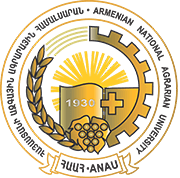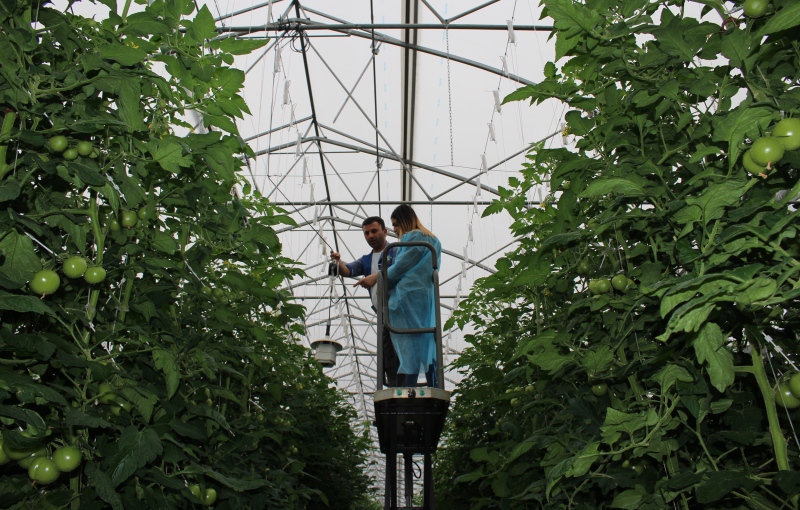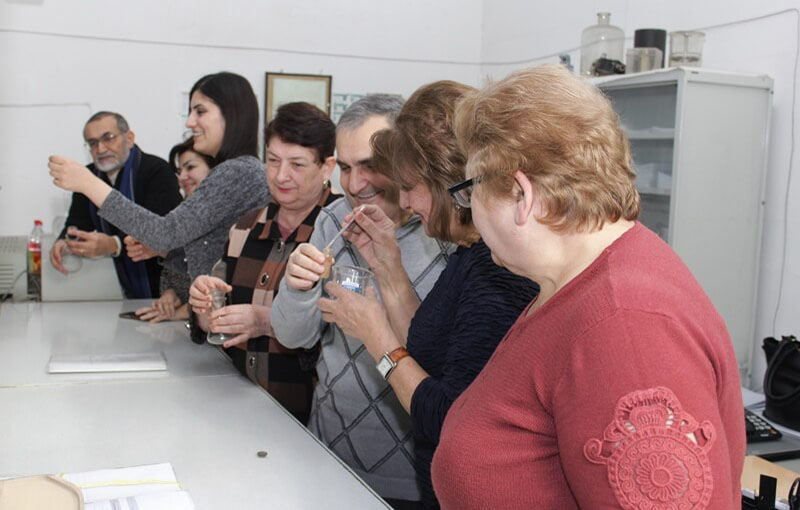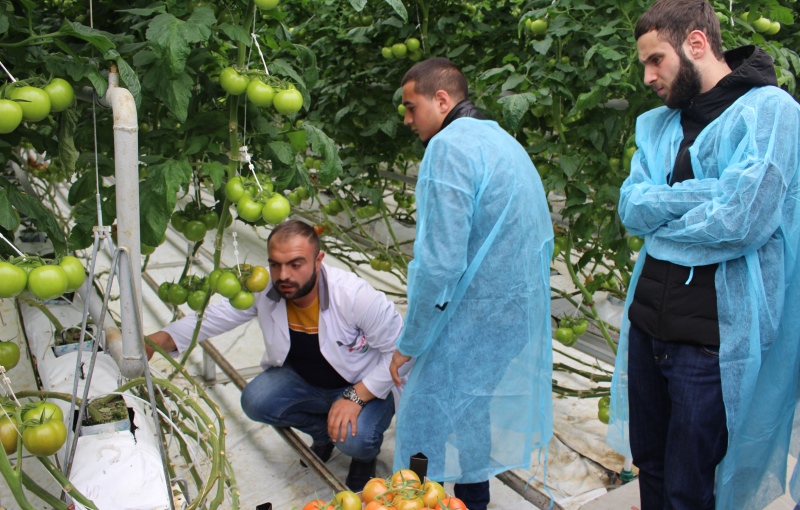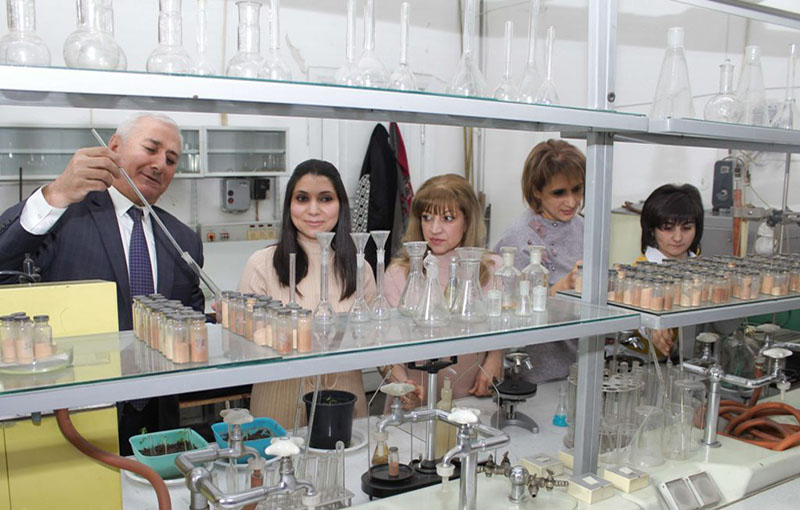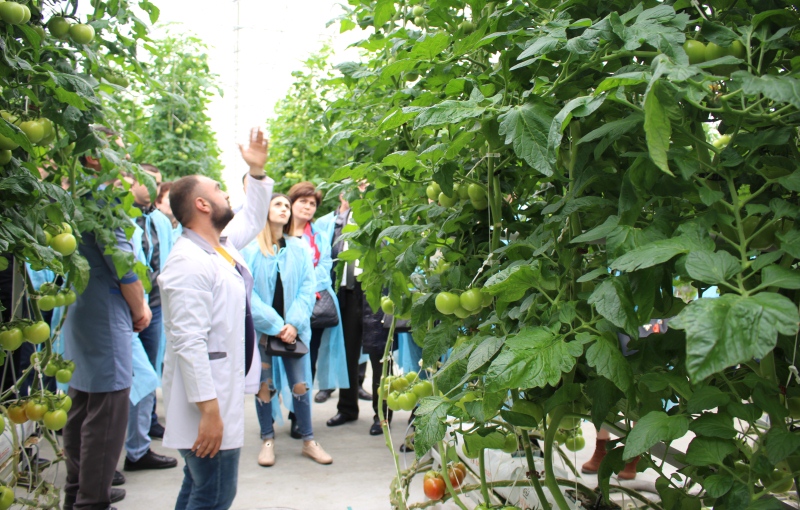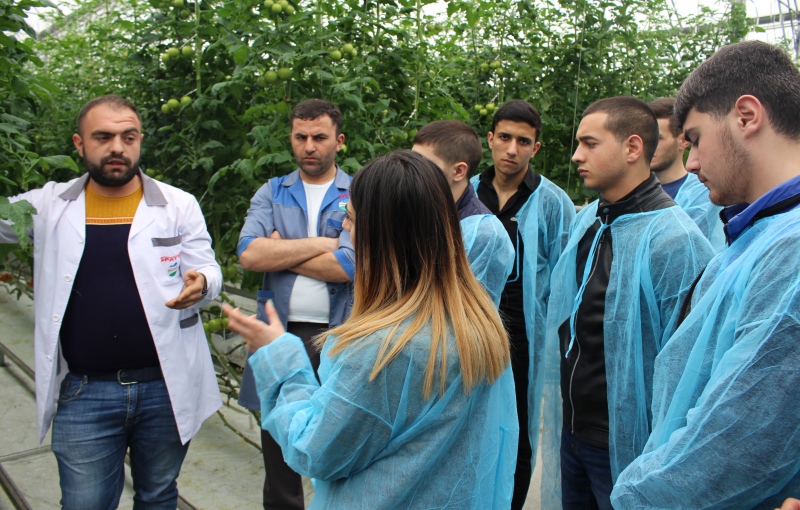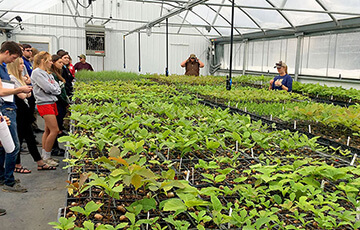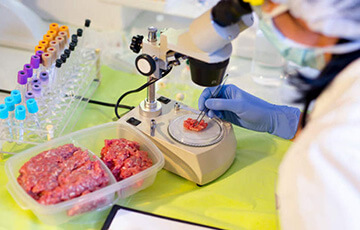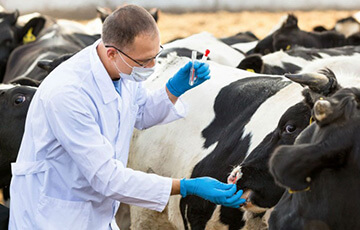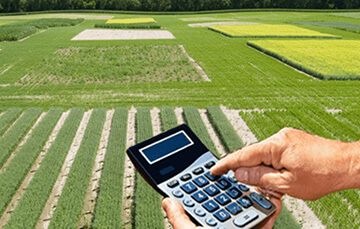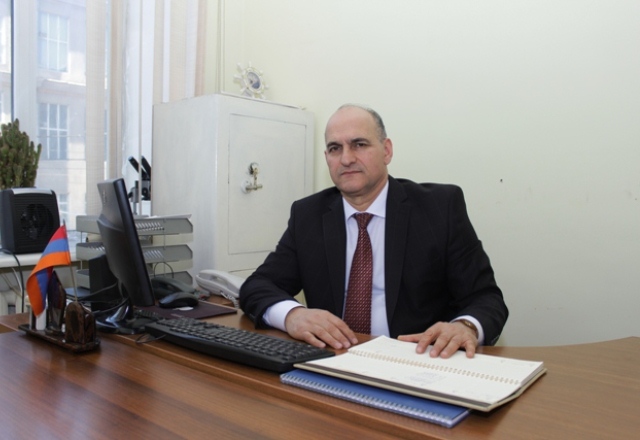
Armenak Ter-Grigoryan
Candidate of Sciences, Docent
Acting Chair
Contacts
- 74 Teryan Str., 0009, Yerevan, RA
ANAU, I building, rooms #242, #342 - Tel. (+37412) 58 11 03, int. 2-36, 3-94, 3-87, 3-61
- [email protected]
The chair of Viticulture was formed in 1927 at Yerevan State University and later in 1930 was moved to newly established Armenian Agricultural Institute. The chairs of Horticulture and Plant Protection were formed in 1933 in the Armenian Agricultural Institute.
In 1947 the chair of Gardening was united with the chair of Grape and Fruit processing and was renamed to the Chair of Horticulture. After the establishment of the Armenian Agricultural Academy in 1994, the three chairs of viticulture, fruit growing and vegetable growing were united and in 1997 the chair of Horticulture and Plant Protection was formed.
2013-2019 the chair was headed by Docent A. J. Ter-Grigoryan. From 2019 up to September 2022, the chair was headed by Docent A. Manvelyan. And since September 2022, the acting chair is the dean of the Faculty of Agronomy, Docent A.J. Ter-Grigoryan.
The chair trains highly qualified specialists in the fields of plant protection, viticulture, fruit growing, varietal science and selection. More than one thousand scientific articles, many booklets, textbooks, training manuals and monographs of scientific and practical significance, have been published by the chair pedagogical staff.
Today in ANAU the scientific research laboratory of viticulture and fruit growing goes, founded by professor P.K. Ayvazyan, who in 1970-2008 headed it. A rich hybrid funds of grapes were created, which includes 35 thousand seed plants and 550 elite sort hybrids.
24 new selective varieties of grapes, maturing in different conditions of compatibility and technical dates, were created by the staff of the department (the authors are professors P.K. Ayvazyan and G.P. Ayvazyan).
Three new selection sorts of apricot trees were obtained by co-authorship with G. Santrosyan. Works are being done in the chair in the following directions: development of new systems of grape vine formation, cultivation of varietal differentiated agricultural machinery, introducing new cultivation technologies and a system of description and classification of varieties in apricot orchards, carrying out a phytosanitary examination in the fields of RA cereal crops, discovering and mapping the species composition of harmful organisms, explorations of characteristics of illnesses and pests of a grapevine, fruit trees and vegetable growing and fighting against those pests and illnesses.
The chair cooperates with the Food and Agriculture Organization of the United Nations, the University of Orleans in France, the selective experimental station of the city of Khrimsk in Krasnodar region, also with the farms of the republic and individual land users. The chair staff participate in the professional consulting activities carried out in different regions of Armenia.
Post-graduate students and applicants carry out scientific researches in different specialties in the chair. Consistent work is also being done in the direction of organizing students’ scientific research.
Chair staff
- Armine Manvelyan – Candidate of Sciences, Docent
- Gayane Avagyan – Candidate of Sciences, Docent
- Gagik Santrosyan – Candidate of Sciences, Docent
- Artem Ohanyan – Candidate of Sciences, Docent
- Eteri Stepanyan – Candidate of Sciences, Lecturer
- Gayane Gabrielyan – Candidate of Sciences, Docent
- Aramayis Muradyan – Candidate of Sciences, Lecturer
- Lusine Sargsyan – Candidate of Sciences, Asistent
- Bella Grigoryan – Candidate of Sciences, Asistent
- Sona Sargsyan – Candidate of Sciences, Asistent
- Margarit Ghazaryan – Asistent
- Samvel Asatryan – Asistent
- Qristine Amiryan – Asistent – Specialist
- Roza Afyan – Specialist
Subjects
Viticulture
Basics of plant breeding
Ethnography of orchards and grapes
Horticulture
Agricultural Entomology
Quarantine
Agricultural Phytopathology
Basics of Organic Agriculture
General Phytopathology
Forest Phytopathology
Forest Entomology
Entomology in protected ground
Basics of Agronomy
Biological protection of plants
Harmful ticks, nematodes, rodents
Development forecast of harmful disease
Crop and horticulture project management
Seed breeding technologies and perennial nurseries
Post-harvest technologies
Diagnosis of harmful organisms: module
Entomological expertise, module
Phytopathological pathological examination
Plant Sanitarian Examination and certification
Pesticide Toxicology
Integrated fight against harmful organisms
Assessment and analysis of phytosanitary risks
Forest value chains
Plant Protection
Innovation Plant Breeding and Applied Biotechnology
Measures and forms of pest and disease control in protected ground structures
Skills of obtaining virus-free planting material of fruit tree species in protected ground
Skills in using biotechnological methods and cultivation of fruit and vegetable plants in protected ground
Basics of viticulture (dual)
Vitiology of berries and grapes
Basics of plant quarantine
Plant Immunity
General Entomology
Phytopathology
Basics of agriculture
Viticulture – 1
Viticulture – 2
Fertility
Cultivation of fruit plants in protected soil
Entomology
Chemical protection of plants
Forecasting and warning of harmful disease development
Cereal science and fruit growing
Nursery work
Plantation
Technology of obtaining raw materials
Climate change and crop production
Varietal diversity, transgenic plants and improved genomes
Agrochemical Ecology
Scientific research methods/module – 1 – general section, module – 2 – professional section
Forest harmful organisms /module-1/
Pests of forest plants /module-2/
Diseases of forest plants
Organisms harmful to flower plants – module -/diseases, pests/
Study of phytophagous ticks
Entomological expertise, module-2
Diseases and struggles of the greenhouse economy
Viticulture based on varietal science /dual/
Greenhouse pests and the fight
